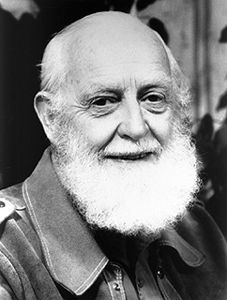
Linda Spalding, writer, editor (born 25 June 1943 in Topeka, Kansas). Linda Spalding lived in Hawaii and Mexico before coming to Canada. In both her fiction and non-fiction, Spalding's elegant prose presents individuals living in insidious states of exile, either because of personal deed or destiny. Spalding's finely drawn settings contrast strikingly with her characters' disturbing triumphs and trials.
The Daughters of Captain Cook (1987), Linda Spalding's first novel, is a dark tale set in the lush landscapes of Hawaii, where Jess and Paul Quill move with their daughter. Spalding's descriptions of the simmering heat parallel the intensifying, isolating allure of Maya, a beautiful, mysterious girl-woman who is revealed to be Paul's niece. With Paul's seduction of Maya, Spalding explores the Islands' ancient culture of licit incest, a sanctioned quest for a powerful line of chiefs in a race threatened with the loss of their way of life.
Spalding's second novel, The Paper Wife (1994), is set in 1960s Mexico, where American college student Lily has run after becoming pregnant by her friend's lover. Spalding's tropical paradise, with its "ancient light," envelops her fragile characters, a foil to their dark states of mental chaos. These characters are dangerously adrift and fuelled by inner turmoil such as Lily's: "Giving the baby away wasn't as awful as the other thing... I was afraid, but I had an address and a suitcase that gave me weight." Another figure, Turner, is filled with angst as he awaits his draft number: "going to Viet Nam, 'Deployed.'...he's out of his head." Though spare, Spalding's style provides the reader with a deep sensory and psychological experience, personal terrors mirroring national as America falls further into the inferno of Viet Nam.
Shortly after meeting primatologist Birute Galdikas, Linda Spalding travelled to Borneo on a "follow," "a form of research in which the subject is observed from a distance ...a chance to do science and do good." Her non-fictional work The Follow/ A Dark Place In The Jungle: Following Leakey's Last Angel Into Borneo (1998) was born out of this experience. Spalding is unstinting in her raw reportage: "there is a red patterned snake with a frog in her mouth... the snake's jaws are locked around the frog's flat foot ... the foot is disappearing, so will go the leg, then the rest of the frog." The Follow was nominated for a Trillium Book Award and the Writers' Trust Non-Fiction Prize.
After editing The Brick Reader (1999) and Lost Classics (2000), Spalding wrote Mere (2001) with her daughter Esta Spalding, an exploration of three wayward individuals seeking peace and a sense of home in the drug-fuelled 1960s. Next appeared Who Named the Knife (2005), Linda Spalding's narrative of her experiences as a jury member at an Hawaiian murder trial. Eighteen years after the sentencing of Maryanne Acker, Spalding visits her to further explore Acker's motivation and reasoning. Spalding's settings are vibrantly alive, despite the violence they hold: "Below the surface of the water, amazing fish can be seen living their lives in the coral...hills that ...feel protective." Spalding reveals a world where nothing can be irrevocably defined, where every life and death is as complex as humanity itself.
Linda Spalding's third novel, The Purchase (2012), was the winner of that year's Governor General’s Literary Award. Loosely based on Spalding's family history, the novel centres on character Daniel Dickinson, an abolitionist and shunned Quaker. He becomes the accidental owner of a slave boy, Onesimus, who brings Bett, another slave, into their lives. Spalding's prose delivers Daniel's voice with authentic consistency. He is relentlessly resolved to beat back the pain of his losses: "The mountainous roads of Virginia were a sorrow made of mud ...There were other wagons but none were so laden with woe." Spalding presents a fully realized pioneer life that demands bleak sacrifices her characters face with integrity, refusing to compromise love for profit.
Spalding continues to serve on the editorial board of Brick Magazine, while teaching and writing. She lives in Toronto with her husband, author Michael Ondaatje.

 Share on Facebook
Share on Facebook Share on X
Share on X Share by Email
Share by Email Share on Google Classroom
Share on Google Classroom

